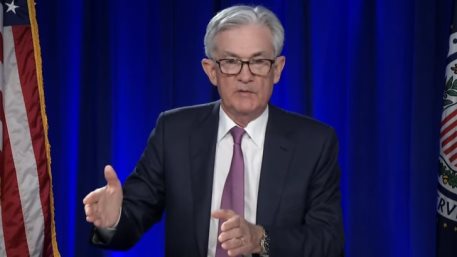
The week ahead promises to be pivotal for global markets, with significant economic events set to shape investor sentiment and market movements. Central banks, economic data releases, and key political speeches are on the agenda, and their outcomes are likely to drive volatility across various asset classes. This article outlines the major events that will impact the global economy and markets this week, providing insights into what traders and investors should keep a close eye on.
Central Bank Interest Rate Decisions: A Focus on Policy Shifts
One of the most critical developments this week is the series of interest rate decisions from major central banks. On Wednesday, both the Federal Reserve and the Bank of Canada (BoC) are set to announce their monetary policy stances. On Thursday, the European Central Bank (ECB) will follow with its own decision.
- Federal Reserve: Market expectations are centered around the Fed leaving interest rates unchanged in its January meeting. The decision comes amid lingering uncertainties around economic growth and inflation, with the central bank taking a cautious approach to avoid stoking further market volatility. Fed Chair Jerome Powell’s press conference following the decision will be closely watched for any forward guidance on the future trajectory of monetary policy, particularly with inflation still above target and geopolitical risks clouding the outlook.
- Bank of Canada (BoC): The BoC is expected to cut interest rates by 0.25%, signaling a pivot to a more dovish stance. The Canadian economy has shown signs of slowing, and the central bank is looking to support growth by reducing borrowing costs. A rate cut from the BoC could put pressure on the Canadian dollar, especially against the US dollar and the euro, as investors adjust their portfolios based on changing interest rate differentials.
- European Central Bank (ECB): Similarly, the ECB is also forecasted to cut rates by 25 basis points on Thursday, with policymakers expected to shift toward more accommodative measures to combat weakening growth and low inflation in the eurozone. Markets will focus on ECB President Christine Lagarde’s comments regarding the eurozone’s economic outlook and any plans for future monetary easing.
These central bank decisions will have ripple effects on global financial markets, including forex, bonds, and equities. A dovish tilt from the BoC and ECB could weaken their respective currencies, while the Fed’s cautious approach may further boost US dollar strength.
Key Economic Data Releases: US, Eurozone, and UK
In addition to central bank decisions, several high-impact economic reports will be released throughout the week, providing fresh insights into the health of major economies.
US Economic Data:
- PCE and ECI Data (Friday): The Fed’s favorite inflation measure, the Personal Consumption Expenditures (PCE) Price Index, will be released on Friday. This data will be critical for gauging inflationary pressures in the US economy. Additionally, the Employment Cost Index (ECI) will provide an update on wage growth, another key metric the Fed monitors.
- Q4 GDP Growth (Thursday): The preliminary estimate for US Q4 GDP growth will be released on Thursday. Economists are expecting a slowdown in growth, which could reinforce the Fed’s decision to pause rate hikes. If growth comes in below expectations, markets may price in future rate cuts, leading to potential volatility in US equities and bonds.
Eurozone Economic Data:
- German and French Growth Data (Thursday): The two largest economies in the eurozone, Germany and France, will release Q4 GDP growth data on Thursday. These figures will be closely scrutinized for signs of resilience or slowdown amid global economic headwinds. Poor growth numbers could further justify the ECB’s decision to cut rates, while stronger-than-expected data may offer some relief to investors.
- Eurozone Inflation Data (End of Week): Inflation data for several eurozone countries will also be released toward the end of the week, with particular attention on the headline and core inflation figures. Any surprises here could influence the ECB’s next steps in terms of monetary policy.
UK Political Developments:
- Rachel Reeves’ Growth Speech: The UK Chancellor of the Exchequer, Rachel Reeves, is set to deliver a “growth speech” this week, which could have significant implications for UK markets. Investors will be keen to hear any new policy announcements aimed at boosting economic growth, especially as the UK continues to grapple with inflationary pressures and post-Brexit challenges.
Political and Geopolitical Factors
In addition to economic data and central bank decisions, global markets will also keep a close eye on political developments, particularly in the US. The new Trump administration has been making headlines with policy announcements, and markets remain sensitive to any shifts in trade policy, fiscal plans, or foreign relations. These developments can have wide-reaching effects on global trade, commodities, and investor confidence.
Conclusion
The upcoming week is packed with key events that will shape the direction of global markets. Central bank rate decisions, especially from the Federal Reserve, Bank of Canada, and ECB, will be the main focal points, while critical economic data from the US and eurozone will offer further clues about the state of the global economy. Traders and investors should be prepared for heightened volatility as these events unfold. Keep an eye on currency markets, bond yields, and equity indices as the impact of these developments becomes clearer.




















